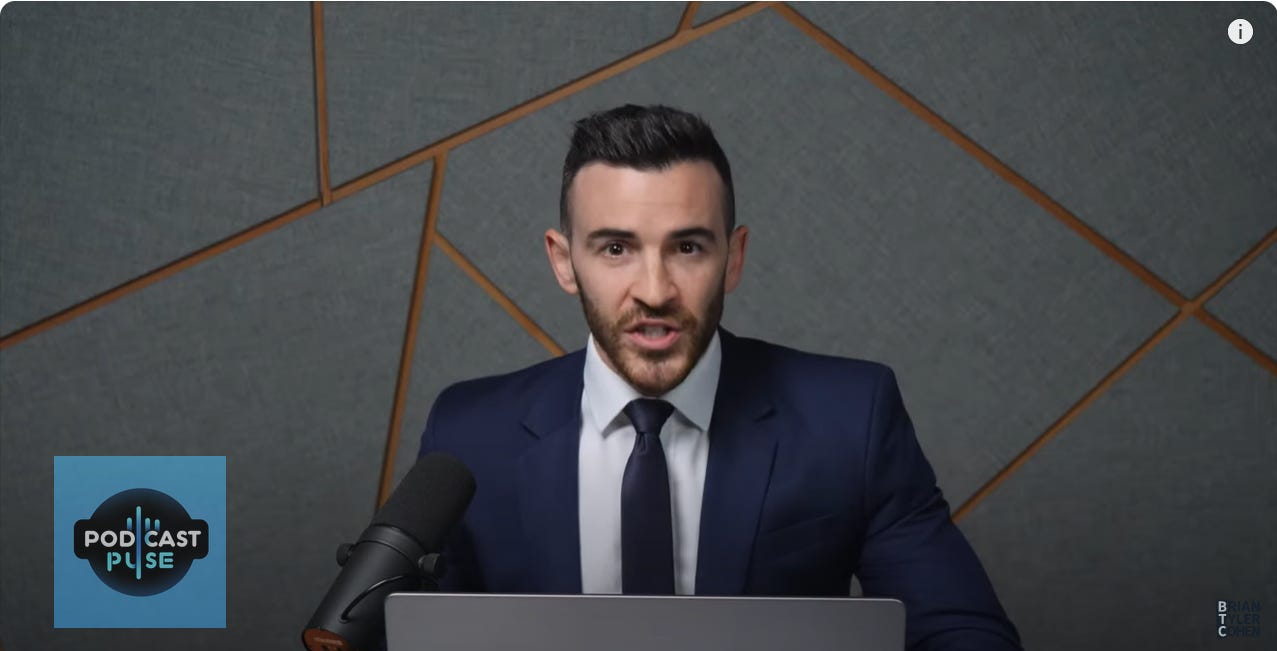#PodcastPulse Article: "Navigating Constitutional Controversies: The 14th Amendment Section 3 and Trump's Future"
Brian Tyler Cohen Podcast: Democracy Watch episode 67: Marc Elias discusses Trump's appeal of his disqualification to the US Supreme Court.
Follow Brian Tyler Cohen on X
Follow Marc Elias on X
Follow Kenn Mangum on X
Key Arguments For and Against the 14th Amendment Section 3 Application to Trump:
For:
Trump's actions, particularly during the January 6th events, are seen by many as fitting the insurrectionist criteria set by the 14th Amendment Section 3.
Advocates argue for the necessity of accountability at the highest levels of government to uphold democratic principles.
Against:
Trump's defense team challenges the insurrectionist label, comparing his actions to historical figures during the Civil War.
They assert that Congress, not the judiciary, should have the final say in determining Trump's eligibility for future office.
Constitutional and Legal Implications:
The debate brings into focus the broader legal question of applying constitutional restrictions to a former president.
Trump's defense strategy, focusing on procedural arguments and sidestepping the direct issue of insurrection, might hint at a legal vulnerability.
The contention that Congress should solely determine Trump's eligibility could disrupt traditional legal processes, questioning the balance of power.
Potential Impact on American Democracy and Elections:
The outcome of this case could set a precedent, influencing the future eligibility of candidates and potentially the definition of acceptable conduct for presidents.
It raises critical questions about the extent to which a president can act without facing legal repercussions, directly impacting the democratic process's integrity.
Insightful Statements and Opinions:
The podcast criticizes the growing cynicism in political discourse, especially on the left, urging a more engaged approach to the legal process.
A discussion ensues about the potential dangers of the U.S. Supreme Court's decision, particularly if it overturns the Colorado Supreme Court’s ruling, possibly granting unchecked power to future presidents.
Insightful Takeaways for Audience Engagement:
Engage in discussions about how the Supreme Court's decision could redefine presidential behaviors and the very fabric of democratic norms.
Delve into the role of cynicism in political engagement and its long-term effects on democracy.
Concluding Remarks:
This episode of Brian Tyler Cohen's podcast opens the floor for crucial discussions on the balance of power in American democracy and the judiciary's role in maintaining constitutional norms.
These debates are vital for audiences keen on deep, analytical perspectives on political developments.
Marc Elis Bio
Marc Elias is a renowned attorney specializing in election law, political law, and campaign finance. He is widely recognized for his expertise in voting rights and democracy advocacy. As a partner at Perkins Coie, Elias has played a pivotal role in significant election litigation, often representing the Democratic Party and its candidates. His notable contributions include legal battles over voter suppression and redistricting, making him a key figure in shaping the legal landscape of American elections. Elias is also known for his insightful legal analysis and commentary, contributing to public understanding of complex political and legal issues.






